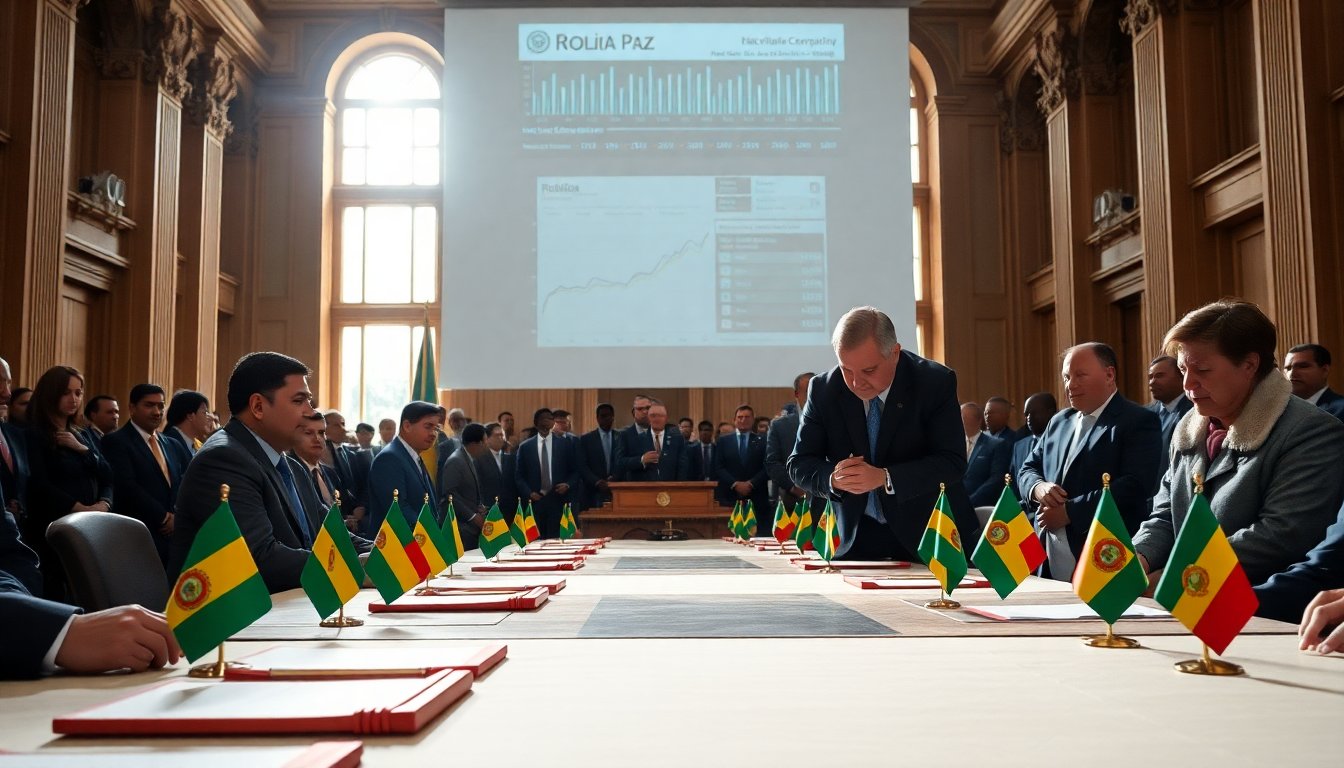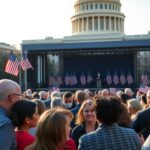Table of Contents
Rodrigo Paz inaugurated as Bolivia’s new president
Rodrigo Paz has been officially inaugurated as the new president of Bolivia, marking a significant political shift in the country. His election ends nearly two decades of governance by the Movement for Socialism (MAS) party, which was noted for its leftist policies and economic challenges.
Paz steps into office amidst high inflation rates exceeding 20% and a critical shortage of essential commodities such as fuel and foreign currency. These pressing issues present a substantial challenge as he begins his presidency.
During his swearing-in ceremony at the Bolivian congress, Paz, who is the son of a former president and a member of the Christian Democratic Party, reaffirmed his commitment to the nation.
He stated, “I swear to uphold God, my family, and my country,” indicating a desire for a new direction for Bolivia following years of leftist leadership.
Economic challenges ahead
Rodrigo Paz’s presidency occurs during Bolivia’s most severe economic crisis in four decades.
The previous administration, led by Luis Arce, depleted the nation’s hard currency reserves in attempts to stabilize the economy through fuel subsidies. This depletion has resulted in a scarcity of dollars for imports, which has significantly impacted the transportation and agricultural sectors, leading to increased food prices.
Inflation and fuel shortages
The economic landscape presents significant challenges, marked by rising inflation and increasing public dissatisfaction. President Paz’s administration faces the task of steering through these difficulties while pursuing a vision of “capitalism for all.” This strategy aims to decentralize economic power, reduce taxes, and enforce fiscal discipline, all while ensuring social spending continues to support vulnerable communities.
However, experts indicate that balancing these objectives may be a complex endeavor.
Restoration of international relations
President Paz has committed to restoring Bolivia’s international presence, with a particular focus on improving relations with the United States. During the administration of the Movement for Socialism (MAS), Bolivia’s ties with the US significantly deteriorated, especially following the expulsion of the US Drug Enforcement Administration (DEA) in 2008.
The current president’s intention to renew these connections is viewed as a vital step towards economic recovery.
Collaboration with international organizations
In his inaugural address, President Paz emphasized that his administration would work closely with international organizations on security issues, including re-engagement with the DEA, which had been expelled under former President Evo Morales. This shift towards the US and other international financial institutions indicates a strategic move aimed at attracting foreign investment and promoting economic stability.
Political landscape and alliances
Following his electoral victory, Paz confronts a fragmented legislative environment. His party holds only a minority of seats in the Assembly. To implement his policies effectively, he must build alliances with other political factions. His moderate approach has already garnered support from many voters disillusioned by the previous administration’s shortcomings.
Experts indicate that while Paz’s promises of gradual adjustments and economic reforms are ambitious, he must act decisively to avoid diminishing his political capital. The success of his presidency will depend on his ability to balance social programs with the imperative for economic revitalization.
Support from financial institutions
The Andean Development Corporation has committed $3.1 billion in credit to aid Bolivia’s economic recovery. This funding aims to enhance the nation’s currency reserves and stabilize its economic landscape. Rodrigo Paz’s management of these financial partnerships will be crucial for shaping Bolivia’s economic future.
As Bolivia embarks on this new chapter under the leadership of Rodrigo Paz, the country faces significant challenges. However, with strategic policies and strengthened international ties, there is potential for an economic revitalization that could benefit all Bolivians.





